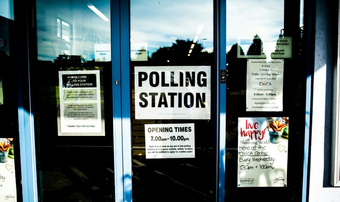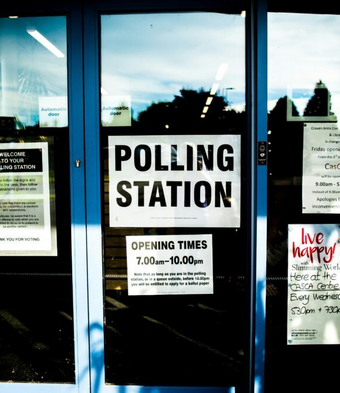What's wrong with our economy?

As the clock counts down towards this year's election, all eyes turned this week to the announcement of the latest budget, to see whether the Tories had anything up their sleeves that would move the dial on their desperately poor poll ratings.
To say there was anticipation for the event would probably be overselling it. After all there is significant scepticism as to what even the most blockbuster of budgets would be able to achieve at this point.
And blockbuster this most certainly was not. (Though the Chancellor did take the time to brand it the purring BMW of budgets, whatever that means.) Others didn't look too kindly on the Chancellors’ latest efforts, likening this week's announcements to sticking lipstick on a pig.
Decoding the spin
With an election impending, we shouldn't be surprised that the measures announced were dripping in political spin.
The Tories announced that the tax burden was falling; Labour claimed that the tax burden was rising. The Tories claimed that as a percentage of GDP, debt was falling. Yet if one looks at the figures, this won’t actually take place until five year’s time, and will depend on rises in certain other taxes. There were some fairly revolutionary ideas touted, but only touted. The Tories announced that we are outperforming Germany, Italy, and France in terms of growth; Labour dismissed this as a “statistical sleight of hand”.
With so much spin, several political commentators have argued the whole thing might as well be done away with.
Alongside the spin, there were several political traps in there to make life slightly harder for the likely incoming Labour government - should the Tories pull off an incredible electoral resurrection, they will of course have merely set those traps and hurdles for themselves.
The Conservatives were kind enough to nick two of Labour's key economic ideas though, reforming non-dom status, and maintaining the windfall levy on oil and gas (much to the annoyance of Scottish Conservatives).
Introducing Labour policies now to fund tax cuts will erode some of Labour's financial freedom come their likely assumption to office. Likewise, delaying tax rises such as alcohol and fuel duty until the next parliament will create headaches for Labour.
Despite all that, overwhelming criticism or overwhelming praise of this budget is hard to find. The verdict from most commentators was that this budget will neither set the world on fire, nor prove economically disastrous, though there are some notable points of praise that have been welcomed. Given the events of recent years that might be enough for some.
It should also be recognised that whilst the Institute for Fiscal Studies and the Office for Budget Responsibility both provide independent analysis, much of the commentary is politically driven.
Different political motivations and ideologies will inform a large part of how a budget is interpreted. Take, for example, this BBC report looking at how conversations around debt are portrayed on BBC News. Leading economists will disagree on what levels of debt are affordable and healthy, and how and when debt should be paid.
In our era of suspicion and cynicism, we can overlook the fact that there is a legitimate political argument to be had about economics, how economic questions are portrayed, and how they are dealt with. All parties make much use of spin, but economics is not a purely factual science; it is political too.
A budget for the short-term?
Back to the question at hand, it remains to be seen whether Hunt is right in saying that this budget really is the plan to unlock growth and prosperity in the UK. It also is unclear whether he's right in thinking that a quiet, steady project is what people are looking for. My personal suspicion is that he is misguided on both fronts.
Firstly, this budget does very little to address the chronic weaknesses in the British economy. Fundamentally we borrow too much, produce too little, consume too much, and save too little - something highlighted by the little-known SDP.
We have a long-standing problem in the UK, where we prioritise short-term political gains at the expense of tough decisions which are needed for the health and prosperity of the country going forward into the long-term.
The Evening Standard brought attention to the fact that this budget was light on addressing the UK housing problem. Others pointed out that this budget does little to reinforce or strengthen our armed forces at a time of rising international instability and geopolitical tension. Similarly, this budget won't address the hollowed-out nature of public services and local government.
Others have noted that the budget brought few solutions around Britain’s economic dependence on immigration. Again, this is a political debate with plenty to be said on both sides, but the truth is that Britain is economically reliant on high immigration, disincentivizing innovation, training, and rising pay for workers. And that's without touching upon the knock-on impact this has on the housing market.
There was little attention to infrastructure and investment in productive capacity. The UK is renowned for the failures of its infrastructure system, with HS2 perhaps the most egregious example from this government (others include the Lower Thames Crossing where planning fees alone have already doubled what it cost Norway to build the world's longest road tunnel). The Boston Consulting Group report that Britain has the worst of both worlds, in terms of high building costs and long building times, unlike the US, which has high building costs but builds quickly, or European nations like France, which have long building times but come in at much lower cost.
On one level, this is understandable. With the government likely only having six months left, many of these issues would require legislative reform across Whitehall not simply the Treasury, and there is neither the time nor the political will-power to make the hard economic choices it would take to address such chronic issues.
That is a widely commented on failure of this government and its 14 years in power. Yet the accusation could be levelled at the Labour Party too, which also seems short on ideas to tackle the economic malaise, and also has a tendency to backtrack on any significant breaks with the status quo.
This budget then was simply the next chapter in the ongoing political saga that is short-termism and weak political leadership that is unwilling to make tough choices for the long-term interests of the country.
Now I accept that this is my personal take, but my suspicion is the country is looking for brave, bold, new ideas that will reform our economy, and end the decades-long story of anaemic growth, low productivity, and low pay (all of which have to be supplemented by a creaking welfare state that is looking increasingly unsustainable).
I also think this touches upon another political point; I think people would rather be levelled with and inspired to make hard choices in the long-term interest of the nation rather than be told that everything is fine, when their everyday experience tells them the exact opposite.
Now there have been some failures on this front: for example, Theresa May's 2017 attempt to reform social care backfired. But the lesson taken from events like this cannot be to bury our head in the sand. Rather, we must learn how to better communicate with the public, debate with political opponents, and gain support for difficult but necessary decisions.
This may be a tougher task, but it is one where I think the Christian story for economics and society can be of great value.
What makes a good budget?
Although we intellectually know that the budget is a countrywide event, where economic and political trade-offs have to be made, I think our attitude tends to be “what's on the shopping list for me?”
This is epitomised by the Reagan question which has become infamous as the political test that will determine the fate of governments – “are you better off today than you were four years ago?” And in the 2024 election it looks likely people will answer with a resounding “no!”
Please note, it's certainly not wrong for families and households to be concerned with how government policies affect their lives. But if our only concern when it comes to the budget is “how well have I done?” then we are missing the point of public life and we are forsaking a Christian vision for communal living.
Economist Paul Mills puts it like this: “By making wealth our goal, we have succumbed to the idolatry of Mammon about which Jesus warned so strongly (Matt 6:24). Rather, the ultimate goal of economic policy ought to be enriching the quality of relationships within a society… economic wealth may be a helpful means to the end of a relation-healthy society, but it should not become the goal.”
Similarly, Andrew Hartropp argues that “justice means treating people according to the norms given by God” and when it comes to economics, justice should be understood in the following three ways:
- “Justice includes an emphasis on how the poor and needy within a community, or society, are treated…
- Justice is concerned with the quality of relationships…
- Justice in the allocation of resources means that everyone participates in God's blessings, including material blessings.”
David McIlroy concurs, arguing “if all are made in the image of God then all have the right to participate in the riches of his creation, both economic and social.”
So, as we come to the budget, our very understanding of both what it's for, and how economics ought to be prioritised in our country, need to stem not from personal interest, or even dare I say economic growth (as Paul Mills warns, we should be wary of movements that despise material prosperity or increasing productivity), but instead on how it treats the vulnerable, whether it strengthens or harms relationships, and on whether it provides the foundation for all to flourish or just some.
I recognise the answer to these questions are not straightforward, and Christians land in different places; after all the budget is a political event. Nor does the Bible provide us with an objective and universal political and economic system: rather, it provides us with principles that ought to guide our thinking on such matters.
This takes hard work, careful reading of Scripture, dialogue with other Christians, and a good understanding of economics. And this is a tough task, for not every idea or plan that claims to care for the poor, or strengthen relationships, or provide the foundation for the flourishing of all will do so.
Theologian Thaddeus Williams warns of precisely this: “Bad ideas about people have bad effects on people. If we get human nature wrong, then no matter how golden and noble our intentions, the very policies we endorse to help people will end up hurting them… we should not buy into ideologies that claim to care for the poor but undermine the way Scripture commands us to care for the poor”.
This budget might not prove to be particularly disastrous, and it might not prove to be particularly revolutionary, but coming at a time, as it does, of widespread political and economic disenchantment, it does outline our society's need for a better story. Our society needs a better vision of humanity, a better vision of economics, and a better vision for the public square.
Perhaps this is our chance as Christians to wrestle with the biblical teaching on money, economics, and public life, and to present fresh, new, and challenging ideas to a society in which economics is all too often focused purely on individual self-interest, with money as its highest good and guiding light.






